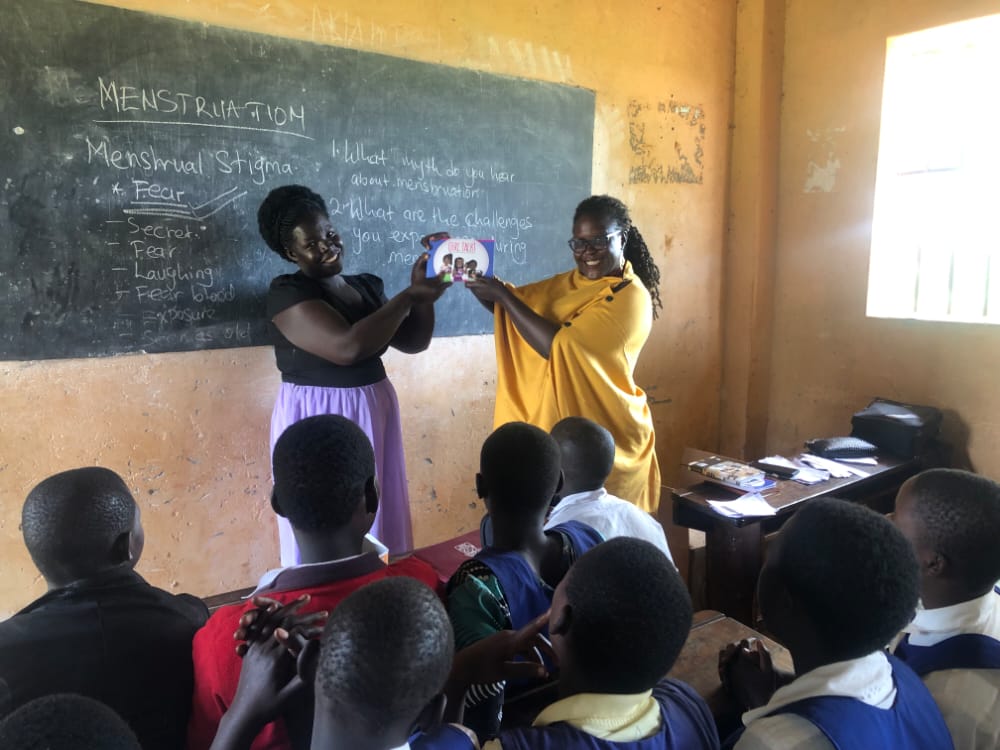
EMPOWERING GIRLS THROUGH MENSTRUAL HYGIENE MANAGEMENT
WII TUKE GENDER INITIATIVE’S MVOICE CAMPAIGN
November 17, 2022
By: Ojok James Onono
This post was originally published on the Knowledge SUCCESS website. To view the original post, click here.
Wii Tuke Gender Initiative is a women- and youth-led organization in Northern Uganda’s Lira District (in the Lango sub-region) that uses technology and culture to empower women and girls from structurally silenced communities. Lira, along with other Lango sub-region districts like Otuke, Kole, Oyam, and Alebtong, who were affected by the Lord’s Resistance Army war. Like most of Northern Uganda, it is grappling with post-conflict issues like forest depletion, poverty, and reproductive health challenges affecting adolescents and youth, among others.
In response to the alarming rate at which young girls in Uganda’s rural areas are dropping out of school during their menstrual cycles because of sanitary pad affordability and bullying from male students, Wii Tuke is promoting an initiative called “The Menstrual Voice” (MVoice) that targets both schoolgirls and the larger community.
Rebecca Achom Adile, Wii Tuke Executive Director, said they started the campaign early this year to instill pride and ensure that girls don’t drop out of school. In addition, during campaigns and school visits, they engage boys about supporting girls’ education.
According to Achom, the MVoice campaign does not only stop at cultivating community support for menstrual hygiene management (MHM) and encouraging girls to take pride in themselves during their menstrual cycles, but also empowers the girls by teaching them how to make reusable sanitary towels. These can last for one year, are made using local materials, and are more cost-effective than the expensive pads sold at the market.
“The most important thing, above all, is empowering these girls to be self-reliant. You know, many men have also taken advantage of the young rural girls in the name of buying for them sanitary pads, clothes and lotions, so the target is to first ensure they are empowered and able to make these pads themselves,” Achom said.
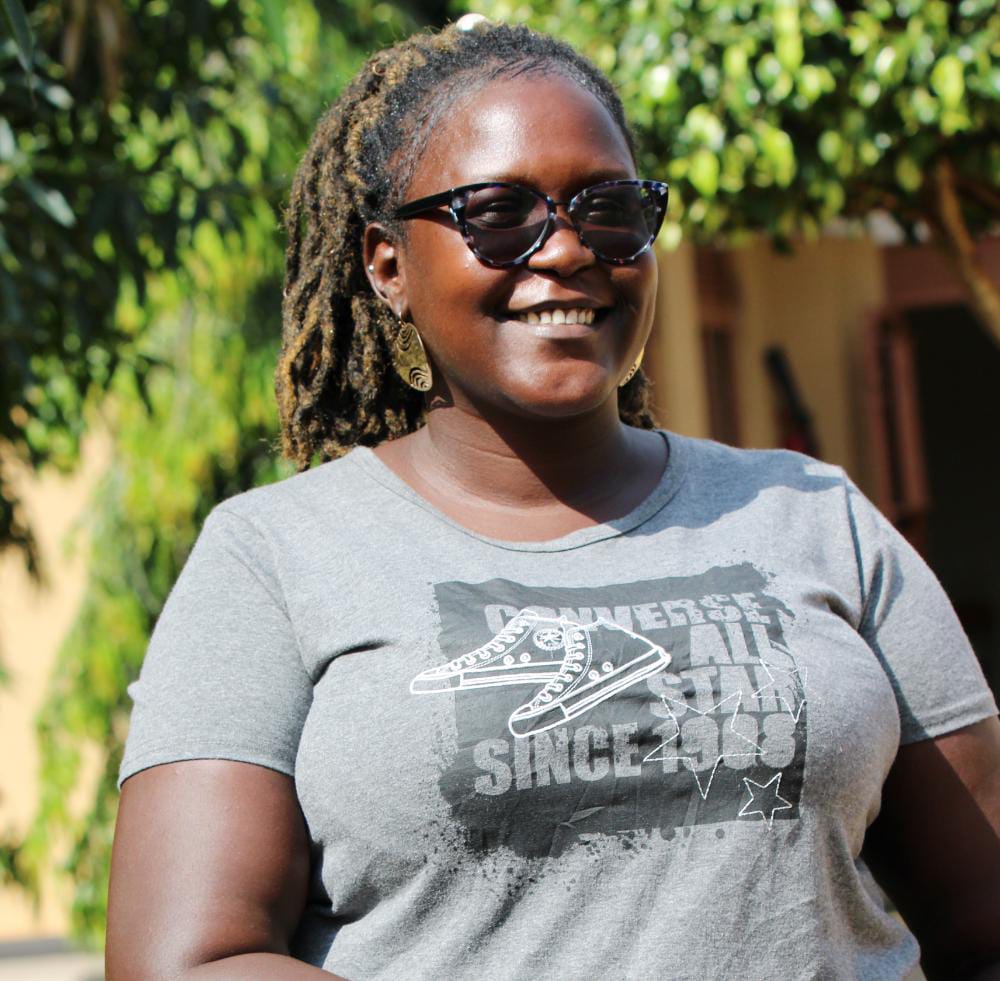
Environmental Protection
Achom added that during their engagement with the girls, they also tell them the benefits of protecting the environment. They educate the girls on proper disposal of their used sanitary pads and help them understand that reusable pads are more environmentally friendly.
Disposable sanitary pads are burned or tossed into a pit latrine, both of which are bad for the environment, and users need many per menstrual cycle, she explained. Reusable pads last a year if a girl washes and stores them correctly; they also have the advantage of being naturally aerated and burning more cleanly when they finally do need to be thrown away.

Self-Protection
Auma Tamali Robinah, Wii Tuke’s program manager and the lead trainer for MVoice, said the initiative is giving the girls confidence to be heard and learn MHM, including physical security.
She said young girls are often targeted by predatory men and need to have basic physical security knowledge. One safety tip includes moving in groups for protection.
“We also give them the basics on security tactics on how they should behave when approaching men, especially on lonely roads or when going to fetch water in rural settings,” explained Auma.
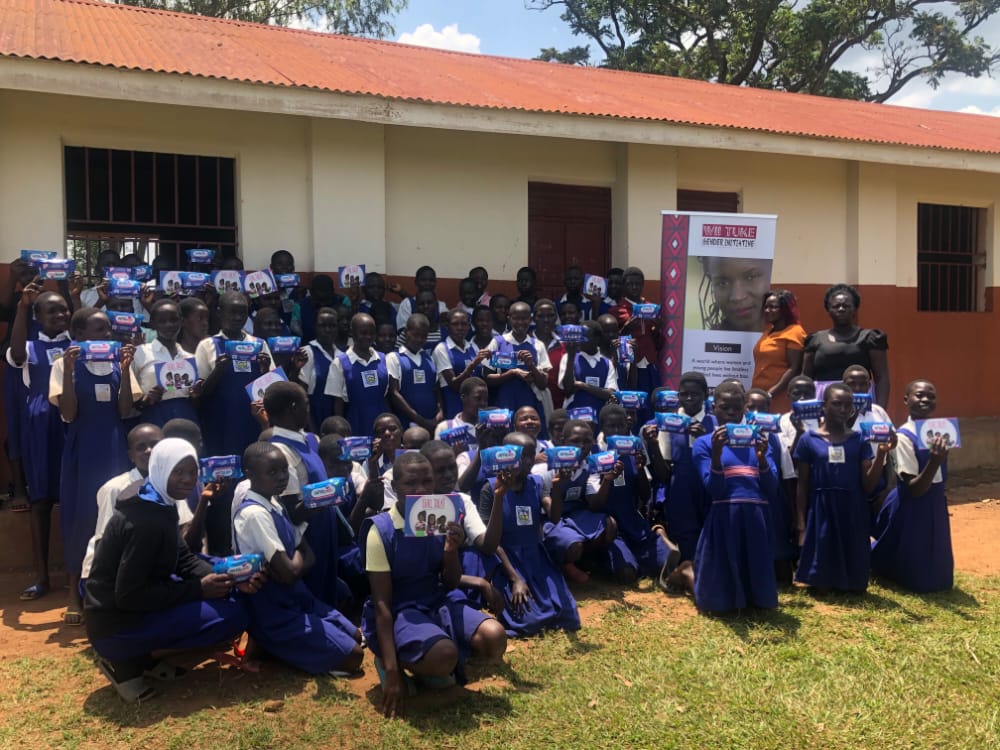
Reach of the Initiative
The initiative has already reached Akia and Amuca Primary Schools in Lira District, where over 100 girls have been trained by the Wii Tuke Gender Initiative Team. The team said they are still hindered financially from covering the entire Lango sub-region.
“We have been partnering with Together Alive Health Initiative and mobilizing resources within us to make sure we deliver to the girls. We hope to begin mass production of reusable sanitary pads and we pray we get funders to support this initiative so that we would be able to cover the entire Lango sub-region,” Achom shared.
She also believes that, beginning with the next school term, they will be able to address many more schools to create a greater impact on the lives of adolescent girls.
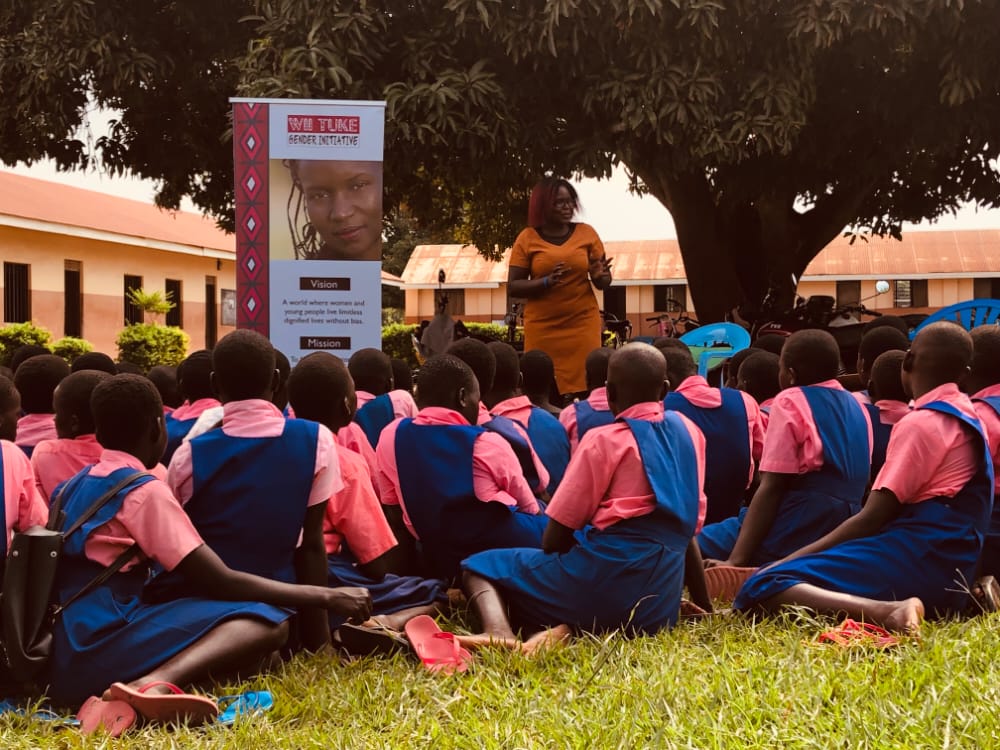
Political Advocacy
In his 2016 presidential campaign, Ugandan President Yoweri Museveni Kaguta promised to provide free sanitary pads, principally targeting primary school girls. However, the government announced shortly after the election that the funds have not yet been available.
Many feminists in Uganda have been campaigning for the government to consider waiving taxes on sanitary pads and instead apply them to condoms. They argue that although condoms are often necessary, the menstrual cycle is naturally occurring and unavoidable; hence; instead of distributing free condoms throughout the country through various health initiatives, there should be initiatives to support girls with free sanitary towels. At least, this should be established in remote parts of the country, where many girls are forced to miss school during their menstrual cycles because the cost of sanitary pads is a financial burden on their parents.
“Currently, sanitary pads cost in the market is between $1-2 US. Many parents can’t afford [this]. Ouror government can heavily invest in ensuring that the reusable sanitary pad initiative is created in all schools in the country,” Achom said.
Wii Tuke joined hands in calling upon the government to consider waiving taxes on all sanitary pads so that they can more easily be available to all girls in Uganda.
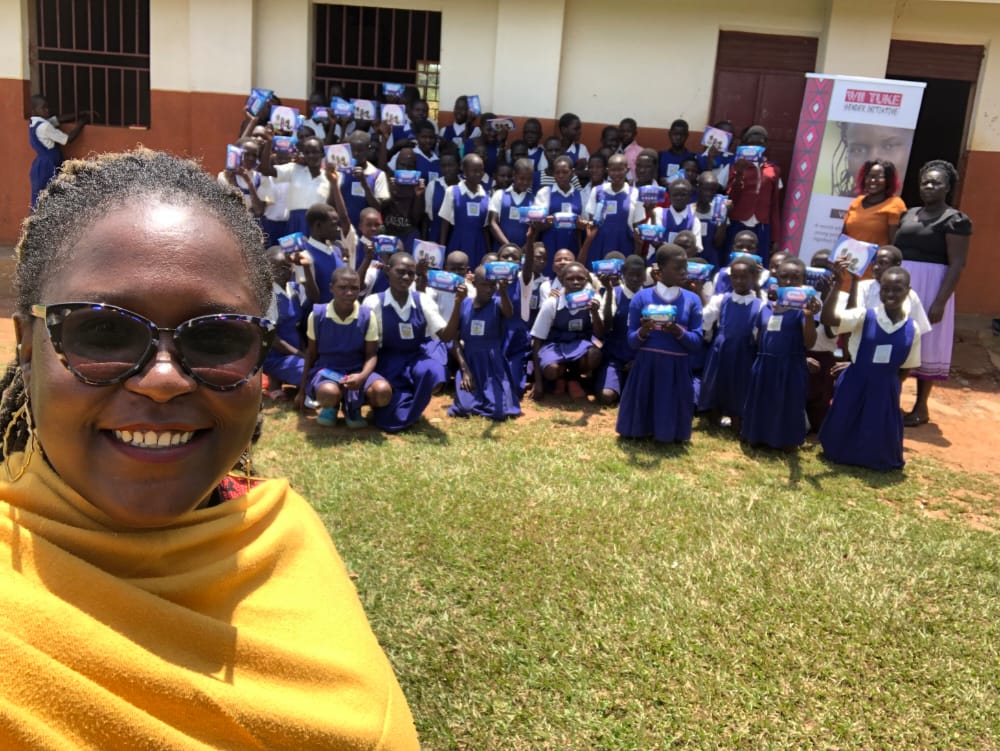
Conclusion
The aggressiveness of Wii Tuke Gender Initiative team members is visionary and timely, because what they are fighting for is the true representation of the state of MHM among young Ugandans. The situation is most dire in Uganda’s remote areas, and the issue of removing taxes from sanitary towels is a matter the government must handle with great care. Policy makers need to support this effort so that Uganda joins Rwanda, which in 2019 waived its tax on sanitary towels.
To stay up-to-date on the work of Wii Tuke Gender Initiative, follow them on Facebook and Twitter.



